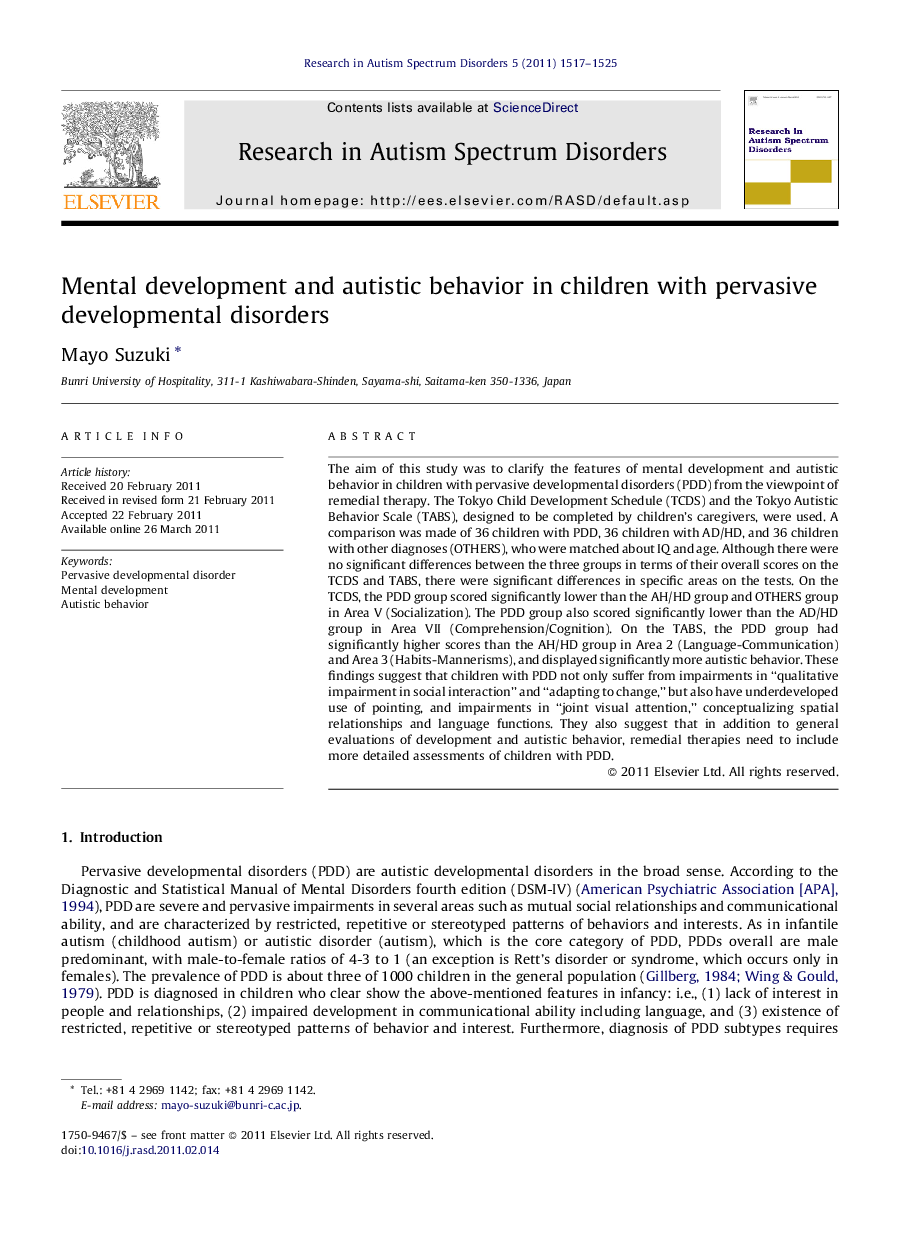| Article ID | Journal | Published Year | Pages | File Type |
|---|---|---|---|---|
| 370666 | Research in Autism Spectrum Disorders | 2011 | 9 Pages |
The aim of this study was to clarify the features of mental development and autistic behavior in children with pervasive developmental disorders (PDD) from the viewpoint of remedial therapy. The Tokyo Child Development Schedule (TCDS) and the Tokyo Autistic Behavior Scale (TABS), designed to be completed by children's caregivers, were used. A comparison was made of 36 children with PDD, 36 children with AD/HD, and 36 children with other diagnoses (OTHERS), who were matched about IQ and age. Although there were no significant differences between the three groups in terms of their overall scores on the TCDS and TABS, there were significant differences in specific areas on the tests. On the TCDS, the PDD group scored significantly lower than the AH/HD group and OTHERS group in Area V (Socialization). The PDD group also scored significantly lower than the AD/HD group in Area VII (Comprehension/Cognition). On the TABS, the PDD group had significantly higher scores than the AH/HD group in Area 2 (Language-Communication) and Area 3 (Habits-Mannerisms), and displayed significantly more autistic behavior. These findings suggest that children with PDD not only suffer from impairments in “qualitative impairment in social interaction” and “adapting to change,” but also have underdeveloped use of pointing, and impairments in “joint visual attention,” conceptualizing spatial relationships and language functions. They also suggest that in addition to general evaluations of development and autistic behavior, remedial therapies need to include more detailed assessments of children with PDD.
▶ Mental development and autistic behavior in PDD, AD/HD and others were compared. ▶ There were no significant differences in their overall scores. ▶ However, there were significant differences in specific areas. ▶ The socialization skills and comprehension/cognition of PDD are retarded. ▶ PDD have problems with language/communication and stereotyped habits/mannerisms, too.
